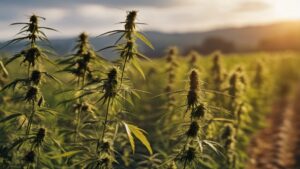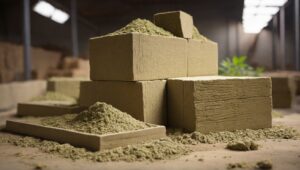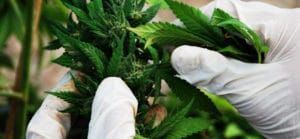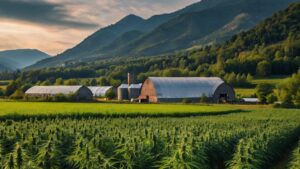
In recent years, industrial hemp has experienced a renaissance. Farmers throughout the world are growing hemp in countries, such as France, that have never banned its cultivation and in countries, such as Canada, that strictly regulate hemp production to guard against even the most remote possibility of illicit marijuana production. The United States, on the other hand, lags far behind. Due to bureaucratic red tape and over zealousness on the part of the Drug Enforcement Agency, industrial hemp cannot be commercially grown in the United States. While American farmers are forbidden from commercially growing this crop, American manufacturers are allowed to import hemp from China and other nations and to manufacture hemp products.
To address this injustice, a coalition of conservation organizations, farmers and businesses petitioned the United States Drug Enforcement Agency (DEA) and the United States Department of Agriculture (USDA), asking the agencies to allow the commercial production of hemp in the United States. The second anniversary of the submission of this petition was on March 23, 2000.
Deplorably, the second anniversary passes with no action by DEA or USDA on the petition.
If DEA and USDA had promptly acted on the petition, American farmers could already be producing a commercially viable crop. According to the Institute for Local Self Reliance, in 1999, hemp yields averaged 800 pounds (17 to 22 bushels of grain), grossing $308 to $410 per acre. These figures compare favorably to the $103-$137 gross made on canola and wheat crops per acre.
DEA and USDA have decided to impede the development of an industrial hemp industry in the United States. While the U.S. Controlled Substance Act allows the import of sterilized hemp seed, oil, grain and other derivatives, DEA blocked a shipment of sterilized industrial hemp seeds at the Canadian-United States border in 1999. For example, U.S. Customs requested that Kenex Ltd., the exporter, recall all of its previous shipments of industrial hemp, totaling 17 trailer loads worth of oil, horse bedding, granola bars and animal feed, or face a minimum $500,000 fine.
This seizure was apparently in response to a newly instituted DEA policy that treats products containing THC (no matter how small the amount) as an equivalent to the controlled drug marijuana. After the involvement of the Canadian consulate in Washington, D.C. and media scrutiny, the recall has been rescinded and shipments resumed. However, border seizures of various industrial hemp products continue, making some U.S. companies wary of manufacturing hemp products. DEA also actively opposes and lobbies against state efforts to encourage the commercial production of industrial hemp. According to Agro-Tech Communications, 16 states introduced pro-industrial hemp legislation in 1999, with nine states actually passing legislation calling for research, study or production of industrial hemp. Hawaii has been the most pro-active, passing hemp legislation and obtaining a DEA permit to grow an industrial hemp test crop. To satisfy DEA’s strict standards Hawaii has
erected a chain-link fence topped with razor wire and a 24-hour infrared security system around its hemp plots measures which would make commercial production impractical.
These actions on the part of the United States government are ensuring that while Canadian farmers prosper from industrial hemp, American farmers are unlikely to see its benefits anytime soon. Industrial hemp is not a drug. DEA’s intrusion into the realm of agriculture is preventing American farmers from growing a crop that has the potential to help address the global depletion of forest resources, the harmful effects of petrochemicals the excessive use of pesticides for fiber crops, and the economic depression of farming communities.






